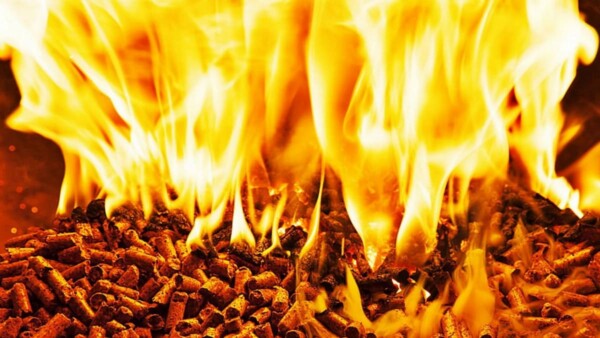Biomass stations: polluting products and river treatment systems
Abatement of fumes, sulphur oxide, dust and odours deriving from biomass plants

The biomass & renewables sector consists of biomass plants and all those plants that produce renewable energy mainly from biomass combustion.
The techniques used to obtain energy from biomass are many and involve the emission of harmful pollutants that must be collected and purified through special abatement systems.
Abatement systems for fumes, odours, nitrogen and sulphur oxides from renewable energy production processes
The biomass used to produce energy are multiple (waste from agricultural processing, organic waste, wood and derivatives..) and each of them has its own characteristics that influence the choice of energy conversion technology.
Among the most used processes are those of thermochemical conversion (direct combustion, pyrolysis, carbonisation and gasification) that exploit heat to carry out the chemical reactions necessary to transform biomass into energy.
The use of biomass creates virtuous circles, but the conversion processes involve the emission of pollutants that must be captured and treated through special abatement systems.
Among the main substances emitted in the biomass and renewable sector, we have:
- acid fumes, sulphur oxides (SOX), nitrogen oxides (NOx) and unburnt emissions during the combustion process of woody biomass inside boilers;
- dust from handling and storage of biomass used for energy purposes. In order to avoid their dispersion into the environment and inhalation by operators, it is necessary to set up special extraction systems capable of collecting the dust directly at source;
- odours emitted during biomass fermentation. Before being processed, organic substances may remain in storage for some time causing the formation of acidic substances such as mercaptans and hydrogen sulphide (gas produced during the bacterial degradation of animal and plant proteins). These odours are very unpleasant and must be treated with appropriate abatement technologies before being released into the atmosphere.
Let’s take a look together at some applied cases in which Tecnosida® solved the typical problems of the biomass and renewable sector.
Fume abatement from biomass combustion plant
For their operation, biomass stations use renewable energy deriving from organic substances.
The type of biomass used greatly affects the pollutants emitted by this process: some generate very fine dust, while others emit Sox. The use of waste from sunflower oil processing, for example, results in the emission of very fine dust that is difficult to treat.
To solve the problem, it is necessary to design and build multi-stage abatement systems capable of treating all the pollutants in the flow.
Purification of odours from pomace fermentation
Olive pomace is a by-product resulting from the extraction of olive oil and can be used as agricultural fertiliser, fuel or for
the production of olive pomace oil and much more.
Fermentation of this product causes the emission of very strong odours that must be captured and treated through special wet systems to prevent their dispersion in the environment.
Reduction of air pollutants in the biomass and renewable sector
As we have seen in this overview, multiple types of biomass are used to produce renewable energy and the thermochemical processes used involves the emission of different types of pollutants.
In order to protect their employees and avoid the spread of harmful substances in the environment, companies must have appropriate pollution abatement systems.
To choose the most suitable technology, it is necessary to rely on experts who, through appropriate technical inspections, can verify the state of the matter and design the abatement systems.
Thanks to long experience in the field, Tecnosida® is the ideal partner for the design and construction of tailor-made systems for the collection, conveying and abatement of pollutants emitted.
Trust the experts: contact us for personalised support!